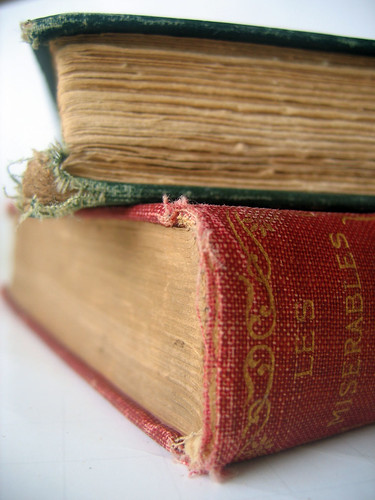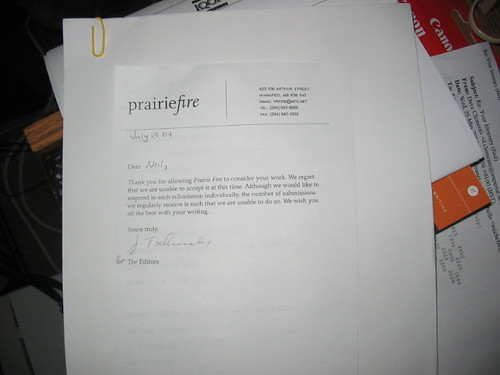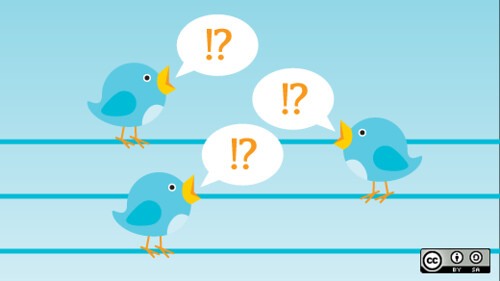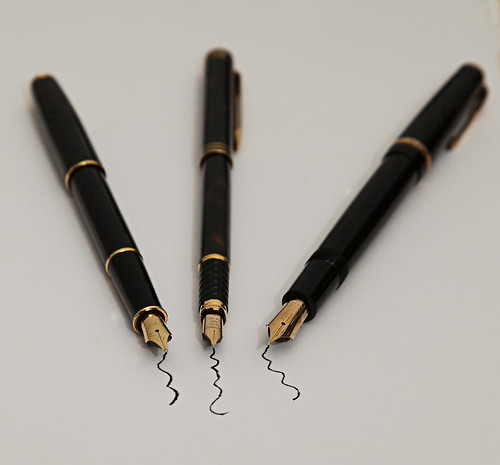You know how they say that no matter what you write, it's all been done before? They're 100% correct. Pygmalion, you will find, is a plot line that still appears in modern story all the time...and it was written two thousand years ago.
The Book
Chances are pretty good that no matter what you want to write about, your main theme was already written into a play by the Greeks, or Shakespeare, and likely both. Such is the case with Pygmalion, which revolves around a now-classic plot. It appears as one in a series of epic poems written by Ovid back in BC. In this early version, it's about a sculptor who falls in love with his own creation.
I can relate to that. Don't all writers fall in love with certain books, certain characters, maybe even just a paragraph? In the story, the sculptor (he's the title character) takes his love to the alter of Venus, and she is transformed into flesh. It ends happily.
And it's a familiar theme. Remember Pinocchio?
Pygmalion is better-known to modern audiences in a different version, however. George Bernard Shaw turned it into a play in 1912, and he set the story in then-modern London. The story revolves around phonetics professor Henry Higgins (he's Pygmalion under an anglicized name), who makes a bet that he can turn a guttersnipe of a Cockney flower girl into someone who will pass for a duchess at a fancy party.
It's a bet that's just too thrilling to turn down, and soon the game is afoot. Higgins will teach the flower girl, Eliza Doolittle, how to speak properly -- like the finest of English ladies. The play is a joy to read, but only if you do so out loud. Eliza's broad Cockney speech is recaptured in words you have to speak to understand. Do it the right way, and you'll learn how to speak proper Cockney.
Higgins does win the bet, and in the original version of the play Eliza finds her own strength and leaves him. George Bernard Shaw said this was the statue coming to life -- Eliza would stand without Higgins, and on her own. But the story was written for the stage, and audiences wanted the happy ending. Directors began to change Shaw's ending, sending Eliza back to Higgins at the end of the story instead. Shaw spent years fighting for the integrity of the original story.
Shaw wrote his version of the story for entertainment, and it's good stuff. So when entertainment evolved, the story was adapted...though, not much.
The Films
Pygmalion became a film in 1938 with Wendy Hiller starring as Eliza Doolittle. Shaw was involved with the production, which very closely follows his play. A ball scene is added, along with a few other smaller scenes, to lengthen the story. It's a very English production with very English actors, and perhaps that's the best way to view it. This version of the story contains the play's most famous line: "Walk? Not bloody likely!"
Trust me, it was extremely controversial at the time. The stage actress who first said it was known for having said it for the rest of her days, and Wendy Hiller similarly raised eyebrows when she screeched it in the film version. But the ending was tweaked a little. Eliza leaves with Freddy, but returns to Higgins in the end...though in what capacity she's returning is left very unclear. The 1938 adaptation of Pygmalion was nominated for several awards, including Writing, Best Actor and Best Actress.
But I urge you to opt for the 1964 version instead, or at least watch both. When the story was adapted for the big screen again, it became a comedic musical...starring Audrey Hepburn and Rex Harrison. My Fair Lady is one of the best musicals ever made, and my personal favorite.
The film is technically an adaptation of an adaptation. Lerner and Loewe used Shaw's play to craft their stage musical, and this is where we get the score and the film version of My Fair Lady. The role of Eliza Doolittle was played by Julie Andrews on the Broadway stage, and New York fans wanted her for the movie. But it was to be a big-budget MGM production, and the studio wasn't about to go with an untested star who, at that time, had not been in a single film. They chose Audry Hepburn instead...and Julie Andrews was drafted by Disney to star in their big musical, Mary Poppins.
What followed is Hollywood legend. Audrey Hepburn worked hard to play Eliza, mastering several different dialects and painstakingly recording each and every number (the entire 170-minute film is chock-full of them). Rex Harrison, who could not sing, played his part with so much vigor and flair it earned him an Academy Award. How good was he in the role? He played the part on Broadway, and legend has it that when Cary Grant was asked to play Professor Higgins on film he said "I won't be in the movie. I won't even go see the movie if Rex Harrison isn't in it."
My Fair Lady also earned Oscars for Best Picture and Best Director, and practically swept the Academy Awards that year to earn a whopping 8. It did not receive a nod for the Best Actress category, despite Hepburn's hard work. That Oscar was won by Julie Andrews as Mary Poppins. Hepburn wasn't nominated...because she was purposefully snubbed.
After Audrey Hepburn recorded all her songs for the role of Eliza, those involved in the film decided that her voice wasn't good enough. Veteran movie singer Marni Nixon was selected to re-sing all the songs but "Just You Wait," a tune where Hepburn's harsher chorus worked just fine. Nixon's voice was also dubbed into The King and I, starring Deborah Kerr, and West Side Story for Natalie Wood. The Academy Awards wasn't impressed that Audrey's singing voice wasn't a part of the film, and she was completely ignored that year in favor of Andrews.
Pygmalion was made into a film again in 1999, this time without the music, to become the teen flick She's All That. The poorly-named comedy is fairly cute, but it's a pretty big departure from the original.
What Got Adapted?
Musical numbers notwithstanding, My Fair Lady is a pretty faithful adaptation of George Bernard Shaw's Pygmalion. The ambiguous ending closely echoes Shaws, and Rex Harrison is wonderful in his final number. A few things are expanded (like Eliza's learning scenes and the big ball), but they add onto the original story instead of changing it. If you haven't seen it, shame on you. My Fair Lady is an absolute must-watch.






























_1.png)

















